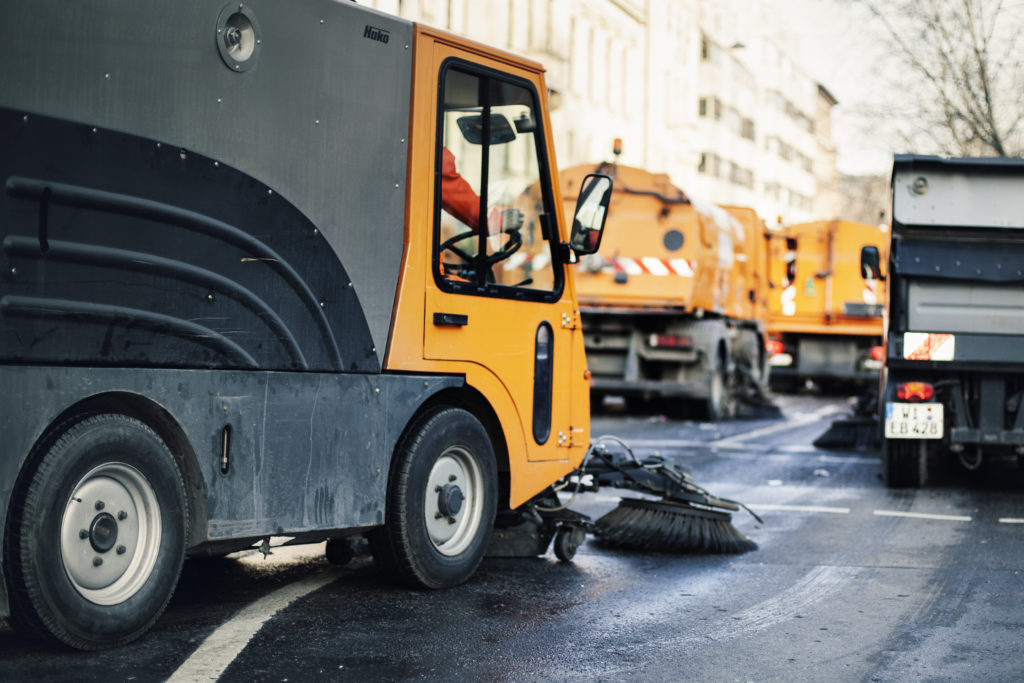 Street sweepers are deployed throughout New York City to keep the streets clean and make sure debris is cleared away. These vehicles are large and heavy and can easily do damage to people and property if not operated properly. The people who drive these machines may make mistakes, which can have catastrophic consequences for themselves or others.
Street sweepers are deployed throughout New York City to keep the streets clean and make sure debris is cleared away. These vehicles are large and heavy and can easily do damage to people and property if not operated properly. The people who drive these machines may make mistakes, which can have catastrophic consequences for themselves or others.
Since they are operated by employees of the Department of Sanitation, if an accident does occur, the City may be held liable for the recklessness of its workers.
How Do Street Sweepers Work?
Street sweepers either spray water or force air in a swirling pattern to loosen up debris on the street and near the sidewalk. A mechanical “broom” then moves this loosened debris toward a central collection area. At this point, a vacuum sucks up the debris and it is deposited into a bin or hopper located on the vehicle itself. Air street sweepers do not require water to do their jobs, but are often louder since an additional engine is needed to power the vacuum pump.
Accidents Involving Street Sweepers
Street sweepers can injure people in multiple ways. If the mechanical brooms are not installed or maintained properly, they may project objects out from them rather than moving debris in toward the collection area. Drivers and operators might not be trained properly or may act in a reckless way that causes injury to others or damage to property. Any collision with a street sweeper can be very dangerous.
Some examples of accidents involving street sweepers include:
- NYC – June 2014. A street sweeper got away from its operator and ended up slamming into a man and crushing him. The operator of the street sweeper failed to put the vehicle in park before he took his foot off the brake, causing the runaway sweeper. The widow of the man who was killed brought a lawsuit against the City, which resulted in more than $40 million being awarded to her and her family.
- NYC – January 2018. A sanitation worker was injured while attempting to dislodge debris in the street sweeper he was operating. A truck tire on the road had been sucked up into the machine. The operator turned off the sweeper and attempted to dislodge the tire. Even though he had shut down the machine, the built-up pressure sucked his arm into the sweeper when he dislodged the tire. The humerus bone in his arm was broken and there was resulting significant nerve damage.
- San Diego – February 2018. A street sweeper truck was involved in a hit-and-run accident that seriously injured two construction workers in San Diego. While cleaning the street, the vehicle swept up a hose that was being used at a construction site, dragging the hose as it continued down the street. The hose pulled two construction workers down into a trench, fracturing one worker’s ribs and causing the other to suffer a broken hand. The driver of the street sweeper stopped a moment, was confronted by other construction workers, and fled the scene.
- Seattle – February 2018. Near Seattle, a man was fatally struck and killed by a street sweeper while it was backing up on the street. This happened in an area where there was no sidewalk for the man to use. He momentarily stopped and knelt down, most likely to tie one of his shoes. As he did this, a street sweeper nearby began to back up without warning, hitting the man and causing blunt-force injuries to his head and chest that resulted in his death.
Liability After a Street Sweeper Accident
In NYC most street sweepers are operated by the Department of Sanitation. There are signs posted throughout the City that instruct people where to park at different times of the day or week to make way for the sweepers. Typical negligence standards are usually not enough to win a case against a street sweeper. Instead, it must be proven that the driver or City acted in a reckless manner in order to hold the City liable. (For example, if the City defers maintenance on a sweeper and its defective part ends up causing an accident.)
Some cases may involve privately owned and operated street sweepers, such as when a construction company hires a sweeper to clear debris from streets near a jobsite. In these cases, the private company that owns and operates the sweeper might be liable for injuries caused by negligence.
Determining responsibility and liability is no small task. An experienced NYC heavy machinery accident attorney should always be consulted after any injury caused by a street sweeper. For a complimentary consultation with the top personal injury lawyers at Wingate, Russotti, Shapiro, Moses & Halperin, LLP, please call (212) 986-7353 today.